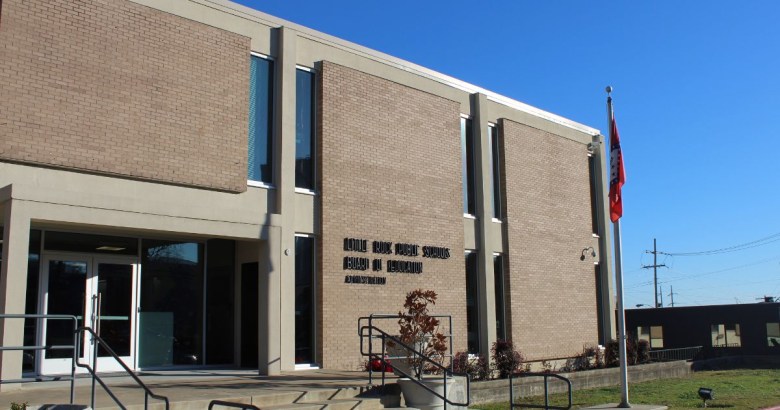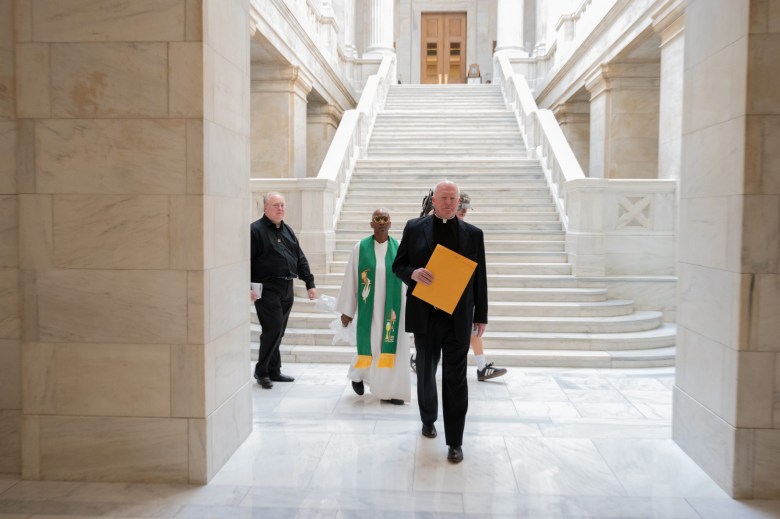A new state legislation forcing Arkansas school districts with less than 20,000 students to shrink their boards to five or seven members prompted the Little Rock School Board to approve new zone maps Thursday night.
The board of the Little Rock School District used to consist of nine members. In compliance with the new Act 503, the LRSD Board decided earlier this year to switch to a seven-member board with four-year tenure. Additionally, the new law replaces the prior range of three to five years with either four or six-year term lengths for school boards throughout the state.
The district engaged Citygate GIS LLC to create updated election zone maps in order to comply with these regulations. (Notably, school attendance zones are unaffected by these maps.) The company’s objective was to establish seven school board zones with equal numbers and representation utilizing data from the 2020 U.S. Census and guidelines derived from the Voting Rights Act of 1965, federal case law, and the U.S. Constitution. The redistricting procedure will cost $12,000.
Four draft maps have been made available for public scrutiny by the district since July. Changes were made following each public comment period.
By a vote of 7–2, the board approved Map 4.
After a stressful start with consent agenda items—issues the board had already covered in their work session at the beginning of the month—the board received some positive news on school improvement at Thursday’s lengthy meeting.
At the beginning of the year, Director Vickie Hatter questioned why we were still hiring.Jermall Wright, the superintendent, pointed out that he had already addressed this in the board’s weekly newsletter. The superintendent proceeded to ask Shawn Burgesse, the director of human resources, to clarify this. There are two reasons why this is annoying. First, unless they are removed from the consent agenda, items on the agenda are not subject to discussion. In Robert’s Rules, this is a fundamental rule. The board has consented to this form of governance. Second, Director Hatter demonstrates once more that she is not prepared for these sessions. Devoted representatives who are prepared to complete the reading required for this board are what our city deserves.
A report on the Little Rock School District’s state accountability status was then presented to the board.
The national Every Student Succeeds Act designated 14 district schools as needing assistance in 2022. Performance metrics such as student accomplishment, academic development, English language learner progress, graduation rates, and general school quality are used to determine the designations. Arkansas uses a system known as the ESSA School Index, which gives each indicator a distinct weight to assess a school’s performance, to aggregate these factors into a single score.
The progress reports for those 14 schools are available here.
It is evident that under Wright and his team, we have been making progress, even if we are still far from where I believe the majority of us want our district to be.
The board was then asked to accept a new contract to improve a number of the district’s magnet schools. Public schools that provide particular themes or curricula in an effort to draw students from outside of the typical attendance boundaries are known as magnet schools.
A federal Magnet Schools Assistance Program grant was awarded to LRSD with the goal of increasing student achievement and drawing in a more diverse student body. The district intends to construct and install specialized labs that are in line with the academic themes of the schools in collaboration with Inventionland, a nationwide company that develops experiential learning environments for corporations and schools.
An eSports lab will be provided to Horace Mann Multimedia Arts & Digital Innovations Magnet Middle School in order to enhance student involvement through cooperative digital gaming and strengthen communication, critical thinking, and technical skills.
A maker space innovation lab will be added to Carver-Washington STEAM Magnet Elementary School to facilitate experiential learning in math, science, technology, engineering, and the arts.
Additionally, a maker space lab for project-based learning that fosters leadership, creativity, and communication will be brought to Dr. Martin Luther King Jr. Leadership & Language Magnet Elementary School.
A production studio will be provided to Dunbar Business, Leadership & Entrepreneurship Magnet Middle School to assist with student work in digital media, narrative, marketing, and business.
The goals of these labs are to boost academic achievement, stimulate innovation, and inspire creativity. By increasing the magnet schools’ appeal to families from diverse backgrounds, they also support the grant’s overarching objective of lessening racial and ethnic isolation.
The lab installations and associated school entryway improvements will cost $287,141.44 in total. This includes $128,404.56 for the maker space at Carver-Washington, $13,404.81 for Carver-Washington’s doorway, $48,672.69 for Mann’s new entryway, and $96,659.38 for Mann’s eSports lab.
The board approved this proposal unanimously.
It’s dragon-slaying time!
The Arkansas Times, which relentlessly defends the fundamental rights and liberties in our community, stands as a light of truth in an era when critical voices are being silenced more and more. Our commitment to provide uncompromising journalism has never been more important, especially with Arkansas in the center of a broad culture war that is impacting our libraries, schools, and public conversation. We can’t accomplish our goals of defeating dragons and holding those in positions of authority responsible alone. You can guarantee that independent journalism in Arkansas not only endures but flourishes by making a contribution today. We can join the fight and make a difference together.







